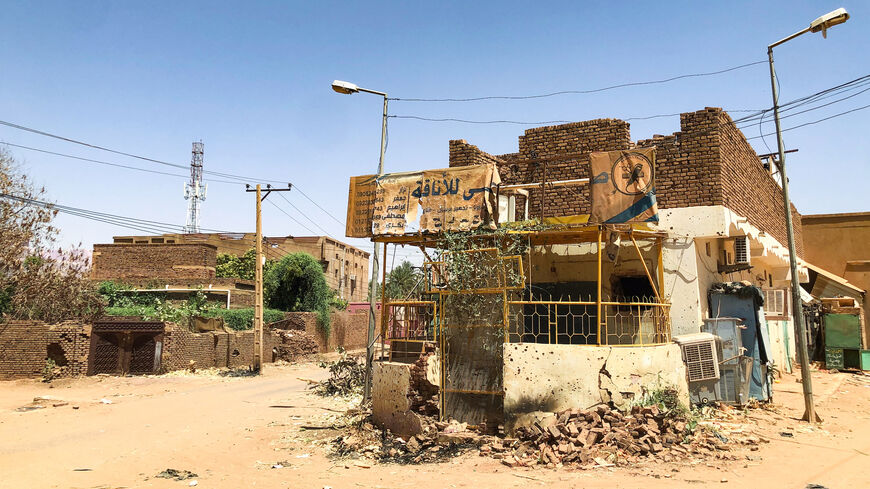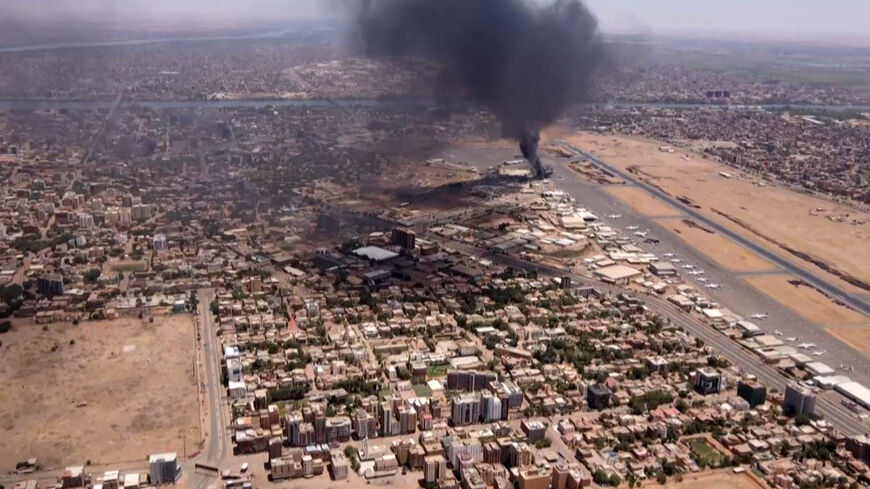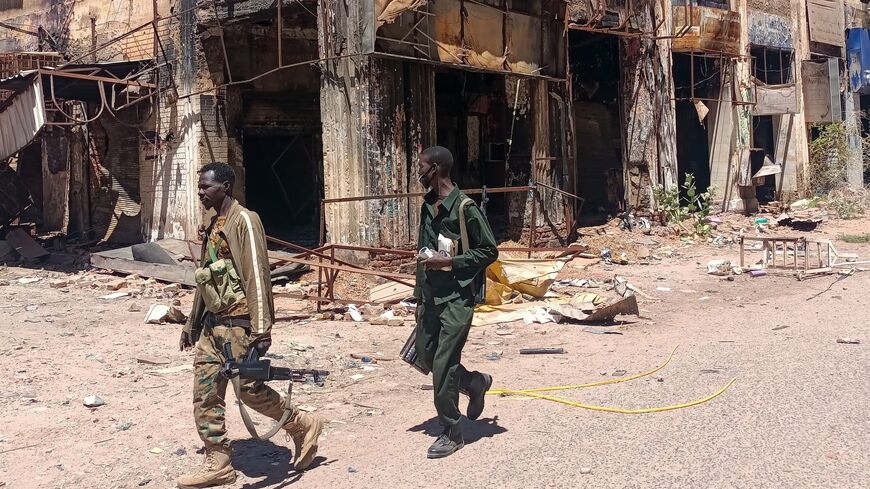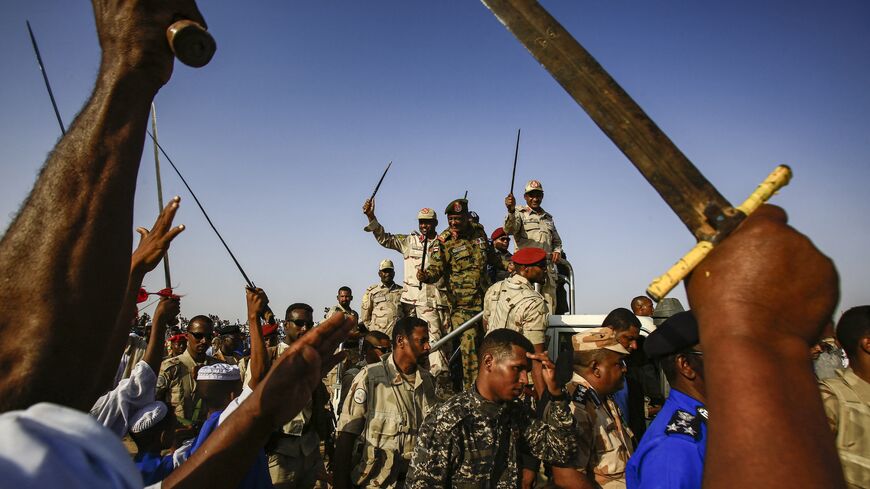Sudan army loses border control to RSF after clashes with Libya’s Haftar
Sudan’s army withdrew from a volatile border zone after clashes with Libyan forces tied to Khalifa Hifter, who is accused of supporting Sudan’s paramilitary Rapid Support Forces.
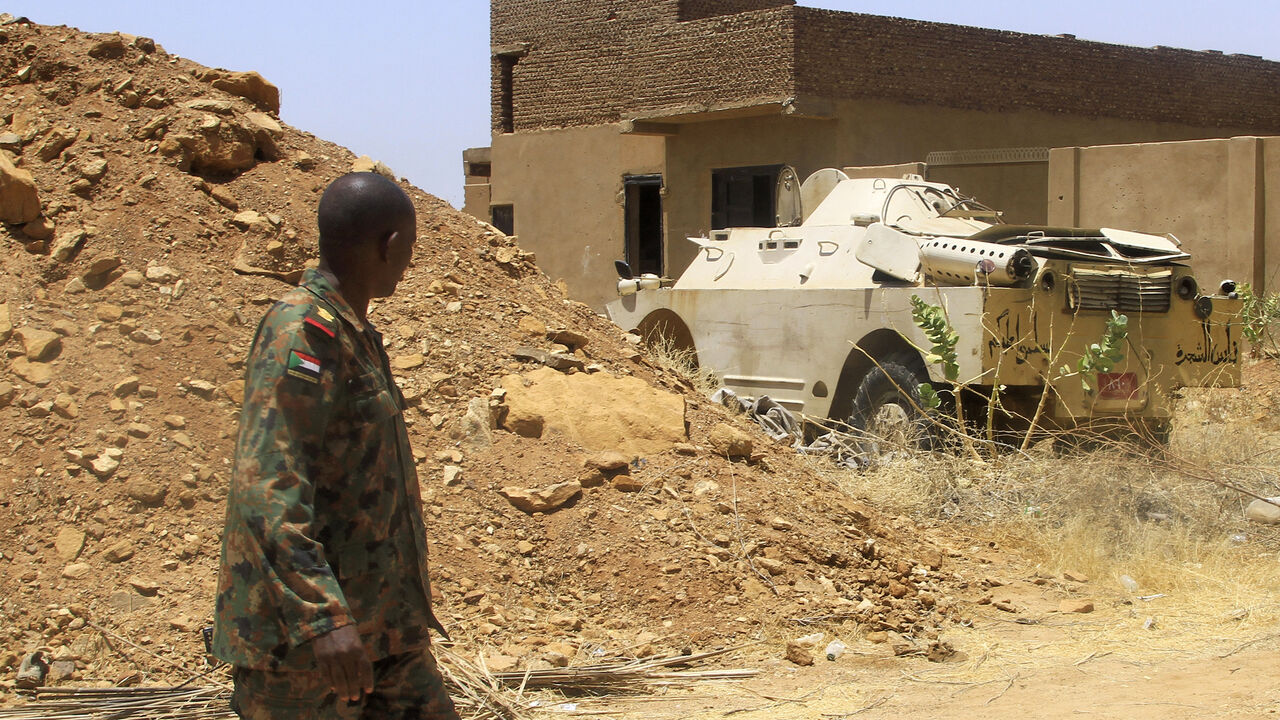
The Sudanese Armed Forces announced in a statement on Wednesday that it had withdrawn from a shared border zone with Libya and Egypt, after clashes erupted between forces aligned with Libya’s eastern-based commander Khalifa Hifter and a group allied with the Sudanese army.
What happened: "As part of its defensive measures to counter any aggression, our forces have today evacuated the triangle area near the borders of Sudan, Egypt and Libya," the SAF spokesperson's office posted on the social platform X.
Following the announcement of the withdrawal, Sudan's paramilitary Rapid Support Forces claimed that they had moved into the area. In a statement on Telegram, the group said they "were able to liberate the strategic triangle area" and had "inflicted heavy losses on the Sudanese army." Videos circulated on social media purporting to show RSF fighters in the area.
🟥 مليشيا الدعم السريع تبسط سيطرتها على منطقة «المثلث» الحدودي بين السودان ومصر وليبيا.#Sudan_War_Updates pic.twitter.com/vMTwbe5El4
— Sudan War Updates (@sudan_war) June 11, 2025
The move comes after recent clashes at the border and a Tuesday accusation by the Sudanese army that forces loyal to Hifter, alongside the RSF, had launched attacks on border posts manned by the SAF and its allies.
Hifter's forces denied involvement late on Tuesday, claiming instead that a Libyan border patrol had come under attack by groups aligned with the SAF.
Clashes on the border had been ongoing since Friday, according to Sudanese media, after a unit from Hifter's Libyan National Army, the Sabil al-Salam Battalion, reportedly advanced roughly 2 miles into the Jabal Al-Oweinat border region, in Sudanese territory. The Libyan forces clashed with the Joint Force, a group allied with the SAF.
According to Darfur 24, which cited a military source in the Joint Force, the clashes resulted in “a number of deaths and the capture of one soldier from the Joint Force.”
Background: The clashes come a month after Libyan authorities affiliated with Hifter closed Libya's land border with Sudan, which effectively blocked Sudanese civilians fleeing the conflict as well as halted the flow of goods into the country. Multiple Arabic-language media outlets attributed the move to the LNA’s General Command, the same group cited in reports for previous border closures.
At the time, Libyan media reported that the move was triggered by the kidnapping of several men from the city of Kufra, which is near the Sudanese border and has long been a flashpoint for smuggling and armed activity.
Until the withdrawal, the border area where Sudan, Libya and Egypt converge had remained under the control of the SAF and its allies. The area has increasingly become a hot spot for cross-border tensions, fueled by the ongoing war in Sudan between the SAF and the RSF and the complex web of alliances between regional militias.
Know more: Hifter and his forces control much of eastern Libya, including key military infrastructure near the Sudanese border. Over the years, he has cultivated strong ties with Russia, Egypt and the United Arab Emirates. In Sudan, Egypt has voiced support for and backed the SAF, while the UAE is accused of supporting the RSF.
Sudan’s Foreign Ministry, which has long claimed that the UAE financially and materially supports the RSF, called the latest incident at the border a “dangerous escalation of the Abu Dhabi regime-sponsored external aggression against Sudan.” The UAE has denied these allegations.
In the context of Sudan’s civil war, Hifter has come under increasing scrutiny for allegedly supporting the RSF. Reports allege that he has allowed the RSF to operate from military bases in southeastern Libya. These facilities reportedly serve as logistical hubs and training grounds, enabling the RSF to smuggle weapons, fuel and fighters across the border into Darfur and other conflict zones in Sudan.
Hifter has denied these allegations, but satellite imagery and reports citing SAF sources suggest at least some degree of coordination or tacit allowance between his LNA and the RSF. The LNA’s control of Kufra and Al-Jaghbub, key Libyan towns near the Sudanese border, provides them strategic leverage over supply routes used by both formal armies and armed non-state actors.
